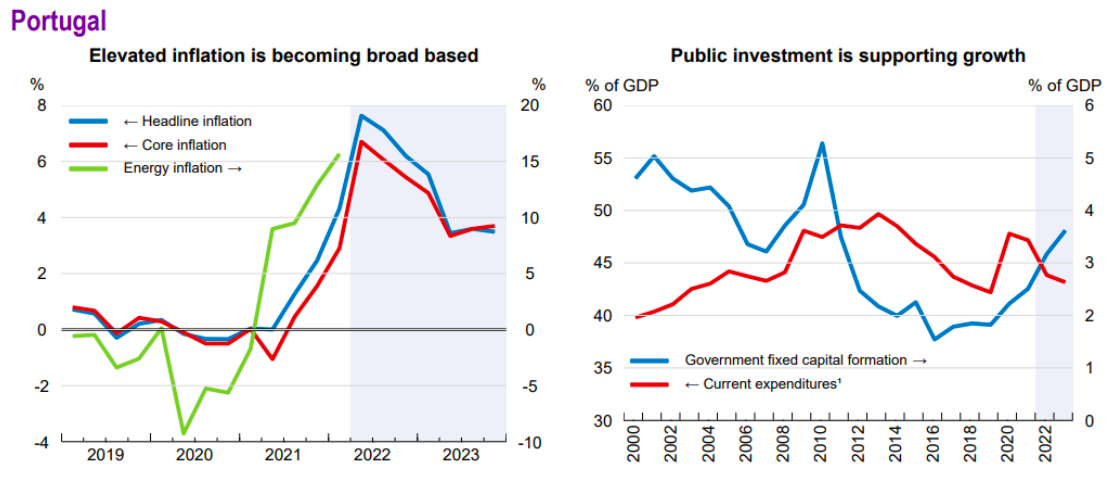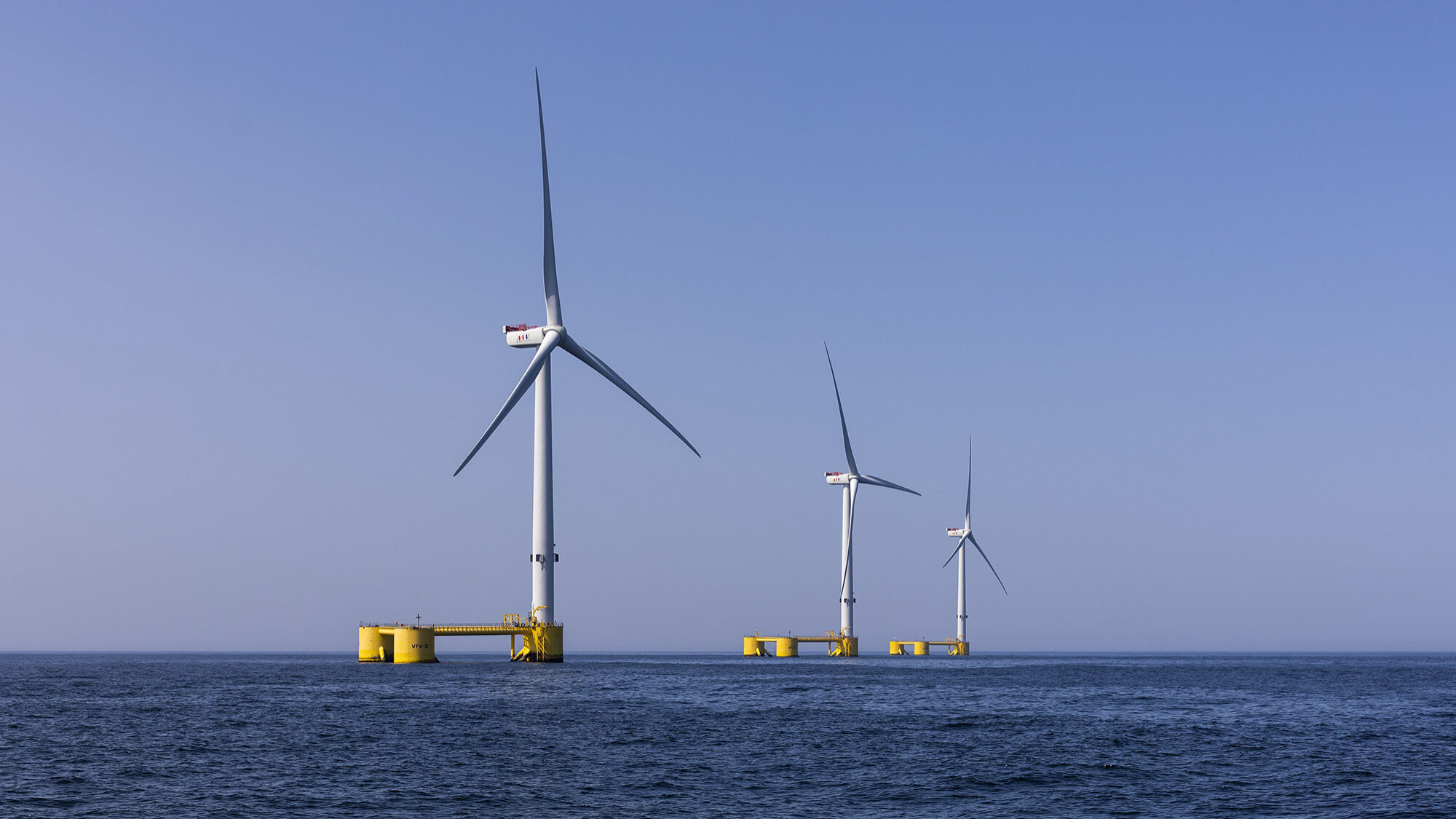OECD downgrades Portugal’s growth to 5.4% in 2022
Despite growing less than previously forecast by the OECD, Portugal's GDP will still accelerate compared to 2021.
Portugal’s GDP will grow 5.4% this year, instead of 5.8% as forecast in December last year. The figure was updated today on the Economic Outlook of the Organisation for Economic Co-operation and Development (OECD). This downward revision will be repeated in 2023, with annual growth falling from 2.8% to 1.7%. The inflation rate will accelerate to 6.3% in 2022, and then slow to 4% in 2023.
Despite growing less than previously forecast by the OECD, Portugal’s GDP will still accelerate compared to 2021, a year in which it grew 4.9% – a figure that was above expectations, which may partly explain the downward revision made by the OECD compared to December. In 2023 there will be a sharp slowdown to a growth rate of only 1.7%.
The OECD is confident that “robust” public investment, fuelled by European funds, and the return of tourism exports will sustain economic recovery. Despite the relative optimism, the Organisation warns that there is “risk of delays” given the “significant” amount of the Recovery and Resilience Plan (RRP).
Although Portugal is not heavily dependent on Russia and Ukraine, the country is no stranger to the effects it has on the world and so a slowdown in the speed of recovery is already being seen. The Russian invasion in Ukraine, the disruptions in supply chains and the increase in the prices of energy and other raw materials will have an impact on economic activity, reducing the confidence of economic agents and the purchasing power of consumers.
Given these inflationary pressures, the inflation rate in Portugal is expected to be 6.3% in 2022 and 4% in 2023. Both forecasts are significantly above the Government’s expectation, which in the State Budget for 2022 (OE2022) points to a rate of 4% this year.

What’s more, the OECD says that the rise in prices is becoming increasingly widespread across all sectors. However, OECD experts confirm the expectation that inflation will decelerate over the course of this year.
The OECD admits wages will accelerate as hours worked approaches pre-pandemic levels, but believes it “will not be enough” to protect the loss of purchasing power due to accelerating inflation.
Another question on the table is the speed and size of an increase in interest rates in response to the high inflation rate, which could “reduce bank lending and gradually limit the government’s ability to spend.”
The OECD also recommends that Portugal maintain a “prudent fiscal policy”, defining a “credible medium-term fiscal consolidation”, which will be “key” to ensure “favourable financing conditions”. After an expansionary Budget in 2022, the Organisation expects a neutral fiscal policy in 2023.
So how should the Government respond to the inflationary surge? Like the IMF, the OECD says the fiscal support should be “temporary and targeted on the most vulnerable”, replacing the fuel tax cut with direct support for those who are demonstrably less well-off.
The OECD also recommends that Portugal should accelerate investment in climate transition to reduce dependence on fossil fuels, as well as in digital transition to increase the competitiveness of companies and improve the productivity of the Portuguese economy.


